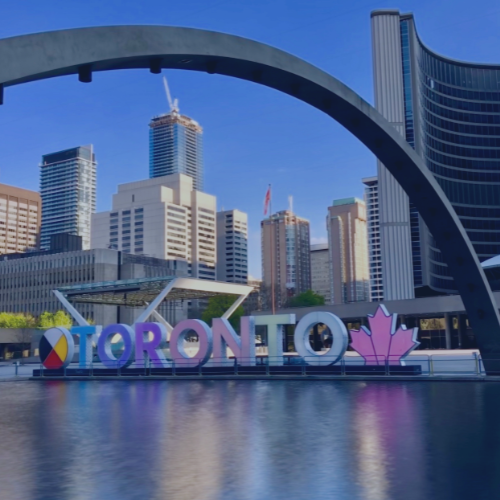Non-tax residents of Canada (foreign buyers) need to pay additional taxes when purchasing real estate in Ontario, namely the "non-resident speculation tax", commonly known as the "foreign buyer tax", which generally costs 15% of the house price.
1. What is the non-resident speculation tax?
The full name of the non-resident speculation tax is Non-Resident Speculation Tax, or NRST for short. It is a 15% tax imposed by Ontario on foreign real estate buyers. The NRST applies to all eligible foreign buyers who settle on or after April 21, 2017. For example, a foreign buyer of a Toronto property worth 1 million Canadian dollars will need to pay 150,000 Canadian dollars in NRST.
The NRST is usually paid through the buyer's real estate lawyer. In addition to this, there is also the Ontario provincial land transfer tax for homes purchased in Ontario and the applicable Toronto land transfer tax for homes purchased in the City of Toronto. Newly constructed or remodeled homes in Ontario may also be subject to the federal Goods and Services/Harmonized Sales Tax (GST/HST).
2. Why is the NRST mandatory in Ontario?
The Ontario government said it implemented the NRST in response to local concerns about the housing market and the rapid rise in housing prices. Its purpose is to discourage speculation in the Ontario housing market, especially by foreign buyers. The Minister of Finance said when introducing the Ontario Budget on April 27, 2017: "The government is concerned about non-resident investors - primarily purchasing homes in Ontario for speculative purposes." Interestingly, the province has not cited any data or statistics to support the NRST.
3. Do I need to pay NRST?
Although the NRST regulations were passed on June 1, 2017, the detailed provisions have not yet been finalized. However, all indications are that the rules will be worded in a broad manner to restrict foreign buyers, whether they are buying directly, through a company, or through a Canadian citizen or permanent resident.
You may have to pay the NRST if you answered “yes” to each of the following three questions:
Are you a foreign entity or a trustee of a foreign entity (a “taxable trustee”)?
Under Canadian immigration law, if you are not a Canadian citizen or permanent resident, you are a “foreign entity.” This is different from whether you are a Canadian resident for tax purposes.
Foreign entities include corporations that are not incorporated in Canada (other than corporations listed on a Canadian stock exchange), corporations that are incorporated in Canada but are wholly or partly controlled by a foreign entity, and corporations that are directly or indirectly controlled by a foreign entity for income tax purposes.
If you are a foreign entity and hold title to the property for someone else (the beneficial owner), you are a taxable trustee. If you are a Canadian citizen, Canadian permanent resident or corporation that holds title in trust for a foreign entity beneficiary (there are exceptions for trustees of widely held investment vehicles such as real estate investment trusts), you are also a taxable trustee.
For example:
If four people buy a residential property in Ontario together, and one of them is a foreign entity that acquires a 25% share of the property, the NRST will apply to 100% of the transfer consideration. In other words, the 15% foreign buyer tax cannot be exempted. As a Canadian citizen buyer, you are jointly responsible for paying the NRST with the foreign entity.
Therefore, if you are buying a property with someone other than your spouse, check whether they are a foreign entity, foreign company or taxable trustee. If you need someone else to co-purchase in order to qualify for the loan and that person is a foreign entity, you should seek legal advice on the consequences.
Note that the NRST also applies to unregistered transfers of a beneficial interest to foreign buyers. This could occur, for example, if a Canadian citizen initially purchased the property without being required to pay the NRST and subsequently gave the beneficial interest to a foreign entity without attributing it to ownership.
To assist with the enforcement of the NRST, the government has made it mandatory to provide a declaration of the buyer’s citizenship, immigration status, and any beneficial owners’ information after May 5, 2016. This declaration must be submitted before the closing of the home.
Are you purchasing a residential property with 6 units or less?
The NRST applies to the purchase of residential property that consists of more than one and less than six separate units, such as detached and semi-detached homes, townhouses and condominium units.
This also includes duplexes, triplexes, quadruples, quintuplexes, and sextuplexes. Buyers who are purchasing more than six units at once (such as multiple units in a condominium) should consult an attorney as to whether the NRST applies.
The NRST does not apply to multi-residential rental apartments, agricultural land, or commercial land.
Are you purchasing within the Greater Golden Horseshoe?
The NRST applies to the Greater Golden Horseshoe, which is the region surrounding Greater Toronto and is made up of the following towns: Brant, Dufferin, Durham, Haldimand, Halton, Hamilton, Kawartha Lakes, Niagara, Northumberland, Peel, Peterborough, Simcoe, Toronto, Waterloo, Wellington, and York.
4. Are there any exemptions?
Yes. The following categories of people may be exempt:
1) Applicants who have been officially accepted by the Ontario Immigrant Nominee Program (OINP);
2) People who have obtained refugee status;
3) You are a foreigner but are the spouse of a Canadian citizen or permanent resident, or the spouse of 1) or 2) above.





